1 Million Children In Prison - Who Profits & How We Can Improve : A Look At 8 Countries!
The number of children who are incarcerated in prisons is rising around the world. Although exact figures are hard to determine the United Nations estimates that there are over 1 million children languishing in prisons across the planet.
In some countries these children are often fodder for the private prison, pharmaceutical or military industries.
However there are some examples of how this difficult situation can be improved. As this is a heavy subject I will leave the best example for last so I can end this post on a positive note.
Children who are locked away for long periods of time not only loose their liberty but also their childhood. Even before they are convicted many children are kept in remand jails awaiting trial for months. In western countries parents sometimes use the legal system to discipline their children.
Secure units, bootcamps and reformatories are just euphemisms for child prisons!

The USA
Across the US more than 10,000 juveniles are currently incarcerated in adult prisons. Charging young people as adults gained momentum in the US during the 1990s. Between 1990 and 2010 the number of juveniles in adult jails increased nearly 230%.
The theory expressed by proponents of sentencing juveniles as adults is that harsher penalties will deter criminal behaviour. Opponents of this system believe that the deterrent effect is minimal and that harsher sentences are more likely to lead to reoffending.
One distressing fact of this situation is that these young children are clearly fodder for the growing private prison industry which is worth over USD $5 billion annually.
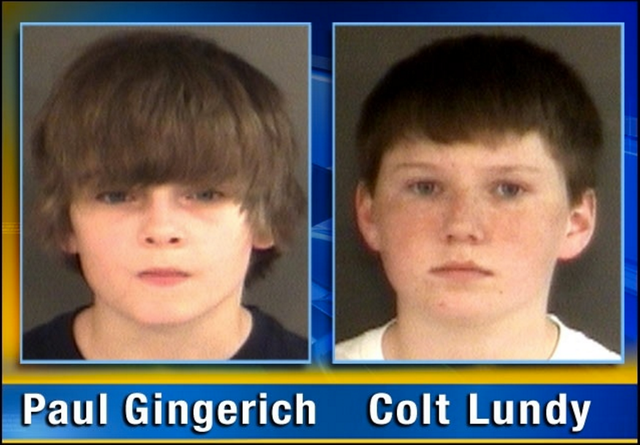
The crime of Colt Lundy and his codefendant Paul Gingerich was the shooting and murder of his stepfather. Both were tried as adults and sentenced to 30 years in prison.
When the boys committed the murder they were 15 and 12 years of age and neither of them had a previous criminal record. Although I don’t condone murder it seems logical that the murder of a stepfather would have some mitigating circumstances. A 30 year sentence is tantamount to throwing away the key and seems to hold no hope for rehabilitation for these young children.
Greg Ousley is serving a 60 year prison sentence for murdering his parents at age 14. When he was sentenced there were no facilities for juveniles and at 15 years old he was incarcerated with adult males. His own recollections only allude to how horrendous his experience of being locked up as a minor with adult child molesters was. It makes me shudder!
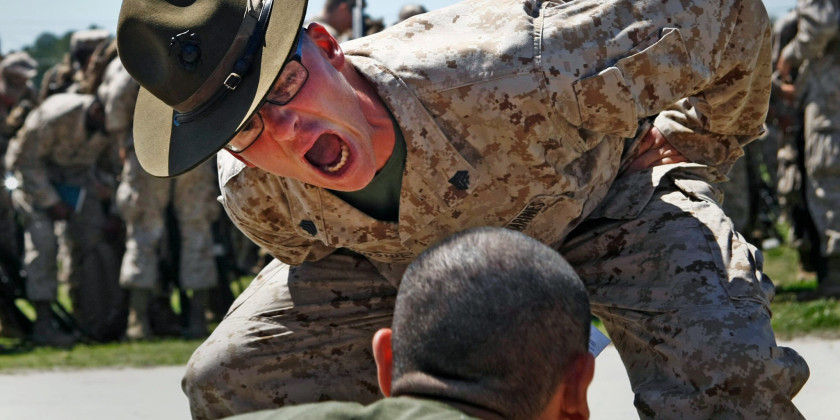
One of the programs for rehabilitating incarcerated children in the US is a type of military boot camp. To see these young children being shouted at and bullied by the instructors appears very much like military indoctrination. My personal reaction is that this harsh regime of obedience will do little to help most kids. Perhaps this process helps to funnel young people into the US’s almost 1.5 million active military personal. There are also worrying allegations of physical abuse in these boot camps.

Children being released from detention in the US are often supplied prescriptions for antidepressants and sleeping pills. This fits right in with the rising prescriptions for psychiatric drugs given to millions of American children.
Naturally this increases the billions of dollars of profits that keep big pharmaceutical companies happy.
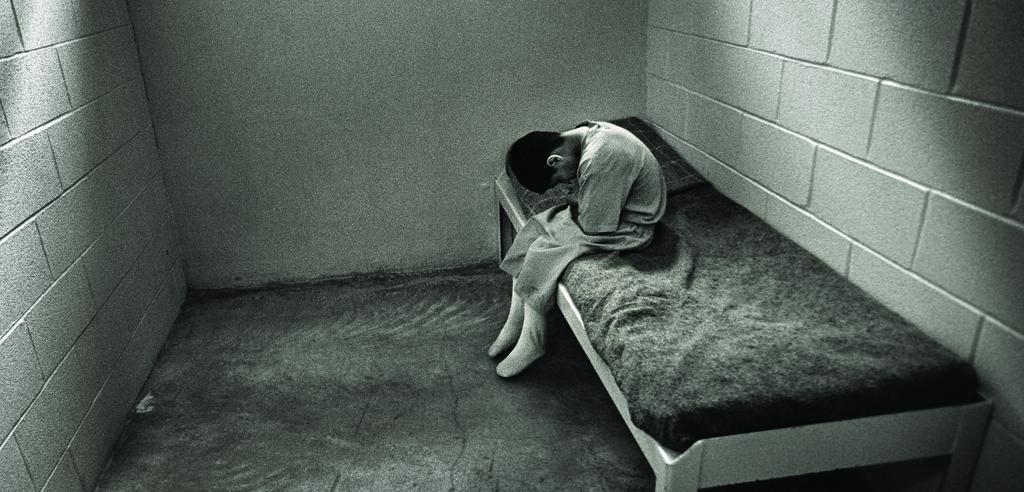
The United Kingdom
The secure units for children in the UK appear to be some of the most comfortable and pleasant. Some of these facilities have individual bedrooms and bathrooms that are more like small flats than prisons. However only about 10% of children incarcerated in the UK are able to reside in such facilities but those that do can often receive 1 to 1 tuition in their studies. Still these children are still locked in their rooms for more than half of each day.
It looks as if the UK does a better job at housing, feeding and educating children in prison but the results don’t necessarily reflect this. From my own experience I know that drugs, alcohol, sex and violence are encountered at a young age in the UK’s inner cities. Often the children in the secure units are fairly hardened by the time they renter society. The UK's sad statistics are that 84% of young offenders reoffend within 2 years of release.
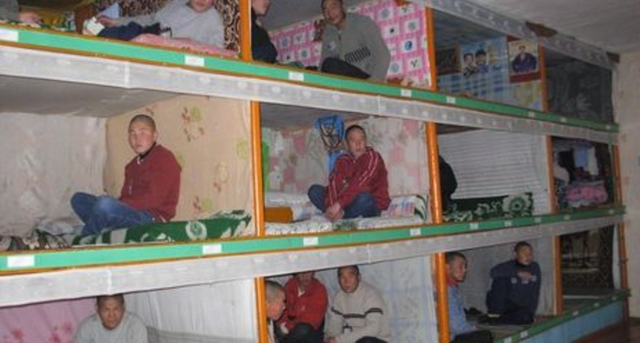
Mongolia
Children can wait for months in Mongolia's police detention cells. The age of criminal responsibility in Mongolia is 14 but children of 9 years and younger can be detained, often through being poor. If the relatives of the arrested children are not aware that their child is in police detention, kids can wait for months in a kind of legal limbo.
According to wikipedia "Adults and children are often detained together. Abuse is common, as are overcrowding, poor ventilation, low hygienic standards, and inadequate medical care. Prisoners doing time don't get medical treatment, even under serious sickness or injuries."
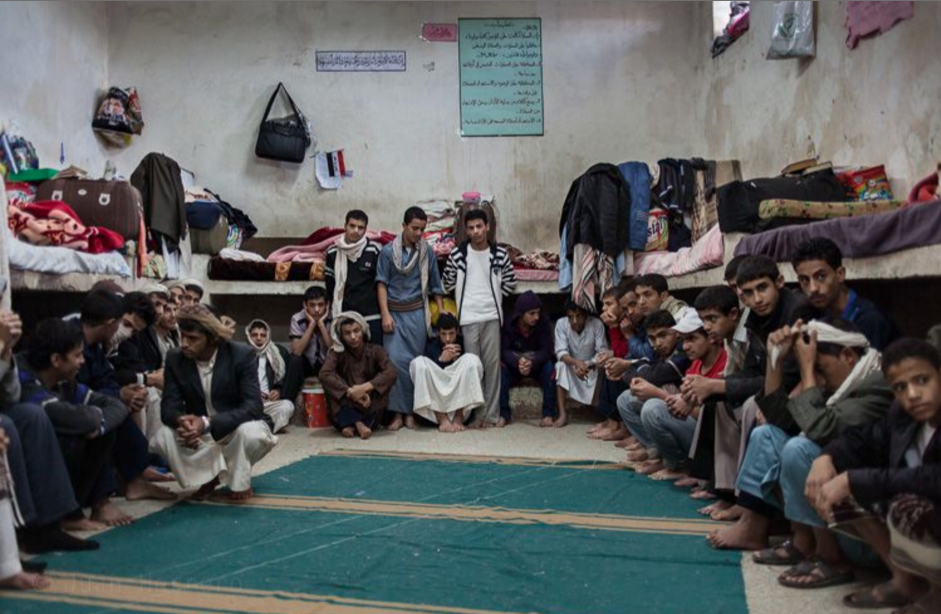
Yemen
International criticism has been levelled at Yemen due to it's practice of executing young offenders. The law states that juveniles under the age of 18 cannot be executed but lack of documentation often means that young offenders receive capital punishment. On the 3rd of December 2012, a firing squad executed a young woman convicted of murder. Her birth certificate indicated she was 15 at the time of her alleged crime.
To say this is distressing is an understatement!
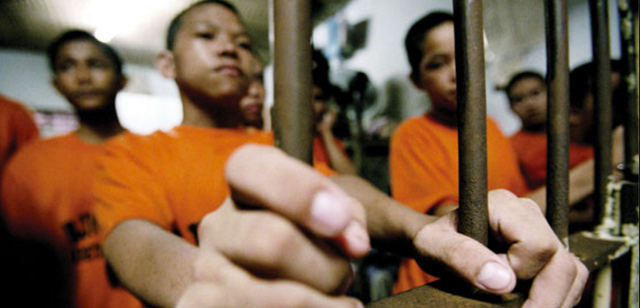
The Philippines
In the Philippines children as young as 9 can be arrested and detained in prisons that are filled to double capacity. There are no education facilities for children to continue school while incarcerated. Often it is difficult for parents to know if their children have been arrested and they are left to wonder where their children have disappeared to.
In my research I found the sad testimony of one child in a Pilipino prison:
“I don’t want to remember anything that happened here. Because if you put a child in prison his mind changes. His mind becomes hardened, so he doesn’t mind being imprisoned again. He’s not scared of going to jail any more so he will do bad things.”
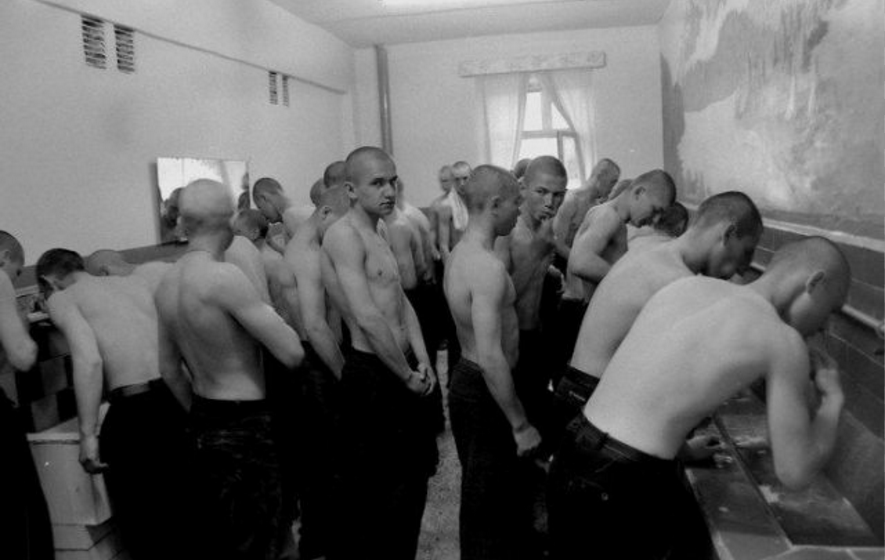
Georgia
In this part of the former Soviet Union the economic situation often forces children towards theft just to help feed their families. The age of criminal responsibility in Georgia is 16 but facilities often house much younger children.
With the economic situation as bad as it is, many families cannot afford to travel to visit their incarcerated children - who in turn end up feeling abandoned. In this struggling economy improving conditions for child prisoners is not a priority. The conditions and environment are harsh for such young children.

Brazil
Children arrested in Brazil seem to have some of the hardest times in the world. It seems that they are often beaten by the guards. In one documentary I researched the Brazilian children all complained of being severely beaten. The crimes committed by Brazil's children can be very serious and include murder, drugs, armed robbery and rape.
Beating and incarcerating these young offenders does not make logical sense if rehabilitation is the goal. Sadly these conditions mirror Brazils hugely overcrowded adult prison system which is the fourth largest in the world. In the first three weeks of 2017 alone 138 inmates were murdered in Brazil's prisons.

Turkey
Turkey seems to have done of the best job dealing with juvenile criminality and has perhaps one of the most effective child prisons in the world. The juvenile detention facility in Turkey's capital Ankara potentially offers us a glimpse of a better style of dealing with this issue.
Having read Billy Hayes’ account of his time in a Turkish prison: Midnight Express, I can imagine that the normal closed prisons in Turkey are very unpleasant with lots of violence, drugs and rape. By comparison the juvenile detention facility in Ankara is more akin to a boarding school. The children are taken on regular trips to the theatre, movies and football matches.
To stop young criminals becoming older criminals Turkey’s system believes that they must rescue juveniles from the traditional prison system as soon as possible. Interestingly this particular juvenile prison does not have walls or a gate and over half of the prisoners leave the facility unaccompanied each day.
After much research on this subject I found it strange to hear young prisoners saying:
“This place is better than the other prison and better than home. This place is great. This place is so good why would you run away?”
In this system the prison authorities assist young prisoners to get jobs in local factories. The inmates are not isolated from society. Once their time is complete many of the boys stay on working in the jobs at the factories, providing the steady income that is vital to avoiding the lure of crime.
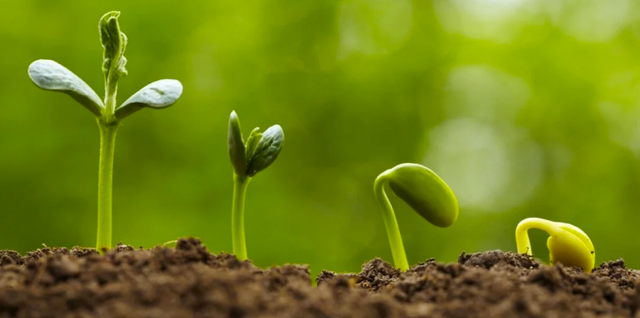
What Can We Do About Child Incarceration?
With over a million children incarcerated around the world I believe it is important that we discuss and address this issue.
It is clear that there are several financial issues at stake here:
The profits of the private prison system
The profits of lawyers, court systems and corrupt police
The profits of big pharmaceutical companies
When children come out of prison they are often full of anger and hardened to the ways of criminals. Many of the juveniles incarcerated in prisons around the world are forced to sign confessions because of torture. Most prisons are chronically overcrowded and I can’t see how incarcerating children is an effective answer to child crime. There must be another answer!
One of the biggest facilitators of our growing prison populations is the war on drugs. I personally believe drug abuse is a social and health issue and should only rarely lead to incarceration. Perhaps if we change this attitude we will see less children locked up for health issues. It seems Turkey has lessons the rest of the world can learn from!
I will be very pleased to hear any opinions you may have on this subject!
Image sources: 1, 2, 3, 4, 5, 6, 7, 8, 9, 10, 11, 12.
Jockey loves you All!

Such an important issue. Thank you for your research and this international comparison. I was not aware of the link to pharmaceutical companies, but, sadly, it makes sense now.
In my home country, USA, we have racial inequalities that lead to very unfair judgement and sentencing for people of color. There's also what we call the "school to prison pipeline," whereby those with unequal access to education and government services disproportionately end up in detention centers. Both of these combine early on in schools, too, as kids of color are way more likely to be labeled with "attitude disorders" or end up in "special education" than their white peers for the same kinds of behavior.
(2012, from suspensionstories.com)
One interesting solution that I have a lot of faith in is garden education in prisons, helping trauma-effected youth reconnect with nature, a sense of their ability to grow and cultivate. We have some programs like this in the San Francisco Bay Area and I will be interested to see when studies come out about their effectiveness.
Thanks again, @Jockey, keep spreading the awareness!
Thank you so much for your amazing comment! I feel strongly about this issue! I have upvoted and followed you! I believe that with progressive education we can fix this issue but we must remove the vested money interests from this transaction. Your comment is greatly appreciated mate! =)
I so agree with you. Prison is not a solution. It doesn't deter crime, and it's not rehabilitative-- it actually just makes the cost to society greater. The real crime is exploiting this situation for private profit.
We can do better, and one important step is exposing the situation for what it is. Thanks again for your research and advocacy! Looking forward to checking out your other posts too :)
I could not have said it better than you just did mate! There are a few older posts of mine which you may appreciate if you have time! =)
Upvoted! =)
I quoted your piece, @jockey! And wrote something partially inspired by it -- about a paradigm shift in relating to difficult behaviors that would also help shift the culture that lands youth in prisons: https://steemit.com/education/@jaredwood/paradigm-shift-for-dealing-with-difficult-behavior
Beautiful and nice post
Thank you so much! I believe we need to discuss this further... I am not happy with this situation! Upvoted! xs
A very sad story and it is global. It is a complex problem and with the incentive of money it makes it even harder to resolve. Those poor children who get psychologically damaged from the greed of others. There seams to be no conscience of those who encourage and promote this travesty. Prayer may help but action needs to be taken. Perhaps voting judges out who are paid off. Education the sheeple of what is happening. And of course publishing the wretchedness of our prison system and the effect on children. As this is a global concern, the travesty can move or be increased in one country when reduced in another. Making a global effort to curtail the corruption would be welcomed. Again thanks for sharing and leading in the effort in support of these children. - Troy
Great article..but the real question is: What kind of moral values did the kids' parents teach them ?
This submission has made it on the @MutuWhale MutuList!